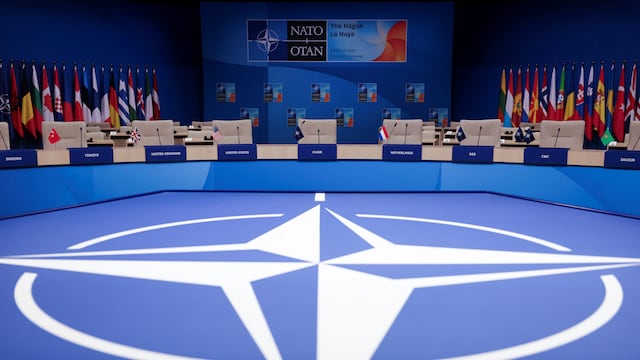NATO is once again in the limelight as “There was an unprecedented violation of Polish airspace,” according to Poland’s military command

What is Article 4 of the NATO treaty?
The North Atlantic Treaty was signed in April 1949 with all signatories committing to “safeguard the freedom, common heritage and civilization of their peoples, founded on the principles of democracy, individual liberty and the rule of law” and pledging “to promote stability and well-being in the North Atlantic area”.
The alliance is the foremost military power in the world, expanding rapidly after the collapse of the Soviet Union to encompass many former allies of Russia.
What is NATO article 4?
Article 4 covers the mechanism in which the nations meet in reaction to a request from one of the signatory countries.
“The Parties will consult together whenever, in the opinion of any of them, the territorial integrity, political independence or security of any of the Parties is threatened”.
Since the Alliance’s creation in 1949, Article 4 has been invoked a total of seven times - four times by Turkey, who requested NATO’s assistance for the first time in February 2003 ahead of the Iraq war.
Numerous drones entered Polish airspace overnight and were met with Polish and NATO air defences. @SecGenNATO is in touch with Polish leadership and @NATO is consulting closely with Poland 🇵🇱
— NATO Spokesperson (@NATOpress) September 10, 2025
According to official sources, NATO has officially invoked Article 4.
BREAKING:
— Visegrád 24 (@visegrad24) September 10, 2025
Poland officially announces it just invoked NATO Article 4 pic.twitter.com/uJSaW1PU64
What is NATO article 5?
Article 5 is arguably the most important part of NATO, being the cornerstone of all other parts of the alliance. This is the article which commits signatories to the collective defence of one another meaning if one is attacked then the others come to the nation in question’s defence.
Related stories
“The Parties agree that an armed attack against one or more of them in Europe or North America shall be considered an attack against them all and consequently they agree that, if such an armed attack occurs, each of them, in exercise of the right of individual or collective self-defence recognized by Article 51 of the Charter of the United Nations, will assist the Party or Parties so attacked by taking forthwith, individually and in concert with the other Parties, such action as it deems necessary, including the use of armed force, to restore and maintain the security of the North Atlantic area.”
Map of Russian strikes on Ukraine last night. Check out the top left corner - significant incursions into Poland. This is no accident: it is a probing attack on NATO’s defences to assess readiness, deliberately calibrated to be below the threshold to invoke Article 5. pic.twitter.com/B7xlEmZwiK
— Andrew Fox (@Mr_Andrew_Fox) September 10, 2025
A significant part of this is the commitment of defence in “Europe or North America”. Article 5 has only been invoked once, 24 years ago, in response to the Sep. 11, 2001 attacks on the United States.

